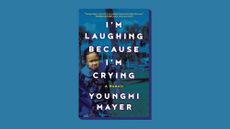The week's best parenting advice: May 12, 2020
A worrying new kids' disease, the murky future of college, and more


1. What is 'pediatric multisystem inflammatory syndrome'?
Troubling reports out of New York, as well as Europe, suggest COVID-19 may be connected to a dangerous inflammatory condition in children. Three children have died in New York as a result of the illness, which doctors are calling "pediatric multisystem inflammatory syndrome." It's likely very rare, but as HuffPost writes, "parents should absolutely be taking this seriously." Symptoms to watch for include a sustained fever, rash, red eyes, swollen lymph nodes, swollen hands and feet, tummy pain, diarrhea, and vomiting. The illness seems similar to something called Kawasaki disease. "Both involve a surge of inflammation in the body and can have serious effects on the heart," explains Pam Belluck at The New York Times. Many of the children showing signs of the syndrome test positive for COVID-19, but not all, so uncertainty remains. Dr. Michael Portman, director of Seattle Children's Kawasaki Disease Clinic, stresses that "if your child has persistent fever for four or five days, parents should seek medical attention."
2. The murky future of college
Higher education will be transformed by the pandemic. What, exactly, college will look like this fall will depend on coronavirus infection rates, but there are a few possible scenarios. Classes could be conducted entirely online, or universities could employ a mix of virtual and in-person classes. Some schools could delay the start of the year by a few months or even an entire season. We could see block scheduling, where "students take just one course at a time for a shorter duration, typically three or four weeks," KQED explains. Schools may permit just first-year students on campus. Or they may allow everyone back, but with social distancing measures in place. "I don't think there's any scenario under which it's business as usual on American college campuses in the fall," Nicholas Christakis, a sociologist and physician at Yale University, tells KQED.
Subscribe to The Week
Escape your echo chamber. Get the facts behind the news, plus analysis from multiple perspectives.

Sign up for The Week's Free Newsletters
From our morning news briefing to a weekly Good News Newsletter, get the best of The Week delivered directly to your inbox.
From our morning news briefing to a weekly Good News Newsletter, get the best of The Week delivered directly to your inbox.
3. Should you hire a virtual babysitter?
The rise of virtual babysitting is upon us, reports Katharine Gammon at NYT Parenting. Sites like Sittercity, UrbanSitter, and Care.com are all offering onscreen babysitting services to "entertain kids and give parents short breaks." Does it actually work? While virtual babysitters obviously can't change diapers or make your kids lunch, they can play games, craft, or read stories with them, all of which engage kids' imaginative play, Ohio-based pediatrician Arthur Lavin tells the Times. But there are limits. Virtual babysitting probably only works in small doses — for 30 minutes to an hour — and is most successful in the mornings when kids are well rested, says Lynn Perkins, the chief executive of UrbanSitter. It also helps if the sitter has a specialty, "like being able to talk and play games about sports, or dinosaurs, or math," Gammon says. As for the cost? Gammon reports virtual babysitting is often offered "at a lower rate than live babysitters."
4. My tween, the big baby
"Baby talk is cute — but only when it comes out of the mouth of an actual baby," says Claire Gillespie at The Week. When your "big" kid suddenly starts whining and purposefully mispronouncing words, it can be especially annoying. But "for tweens and adolescents, regressing back to younger behaviors is a way of regaining their sense of security while simultaneously undergoing a major emotional and physical maturation," Gillespie says. Such behavior is normal, especially in times of stress. The bad news? It might last a while. "It's not unusual for it to start at age 9 or younger, and in some cases it can continue until age 14," says licensed marriage and family therapist Wendy O'Connor. One way parents can help is by teaching kids the vocabulary — words like "stressed," "pressured," "anxious," "threatened," and "inferior" — to express their feelings in a more age-appropriate way.
Sign up for Today's Best Articles in your inbox
A free daily email with the biggest news stories of the day – and the best features from TheWeek.com
5. It gets better
Parenting during a pandemic "is like having a newborn again," writes Carrie Melago writes at The Washington Post. There's exhaustion, uncertainty, a feeling of being homebound, a steep learning curve — and it's all accompanied by a "constant awareness of life's fragility." With this revelation in mind, Melago says in her moments of frustration, she is returning to the lessons of new parenthood: Sleep when the kids sleep. Ask for help. Take breaks when you need to. Remember to take care of yourself. "This framing — that this is a brand new experience, that I'm just getting my sea legs — has helped me be a little kinder to myself during this stretch," Melago says. "For once, I'm trying to suspend judgment, just as I would for a mom wearing a baby carrier askew or a dad who forgot to pull down the sunshade on his stroller. They aren't hopeless parents. They're just new at this. And so are all of us."
Jessica Hullinger is a writer and former deputy editor of The Week Digital. Originally from the American Midwest, she completed a degree in journalism at Indiana University Bloomington before relocating to New York City, where she pursued a career in media. After joining The Week as an intern in 2010, she served as the title’s audience development manager, senior editor and deputy editor, as well as a regular guest on “The Week Unwrapped” podcast. Her writing has featured in other publications including Popular Science, Fast Company, Fortune, and Self magazine, and she loves covering science and climate-related issues.
-
 Can AI tools be used to Hollywood's advantage?
Can AI tools be used to Hollywood's advantage?Talking Points It makes some aspects of the industry faster and cheaper. It will also put many people in the entertainment world out of work
By Anya Jaremko-Greenwold, The Week US Published
-
 'Paraguay has found itself in a key position'
'Paraguay has found itself in a key position'Instant Opinion Opinion, comment and editorials of the day
By Justin Klawans, The Week US Published
-
 Meet Youngmi Mayer, the renegade comedian whose frank new memoir is a blitzkrieg to the genre
Meet Youngmi Mayer, the renegade comedian whose frank new memoir is a blitzkrieg to the genreThe Week Recommends 'I'm Laughing Because I'm Crying' details a biracial life on the margins, with humor as salving grace
By Scott Hocker, The Week US Published
-
 Has the Taliban banned women from speaking?
Has the Taliban banned women from speaking?Today's Big Question 'Rambling' message about 'bizarre' restriction joins series of recent decrees that amount to silencing of Afghanistan's women
By Harriet Marsden, The Week UK Published
-
 Cuba's energy crisis
Cuba's energy crisisThe Explainer Already beset by a host of issues, the island nation is struggling with nationwide blackouts
By Rebekah Evans, The Week UK Published
-
 Putin's fixation with shamans
Putin's fixation with shamansUnder the Radar Secretive Russian leader, said to be fascinated with occult and pagan rituals, allegedly asked for blessing over nuclear weapons
By Harriet Marsden, The Week UK Published
-
 Chimpanzees are dying of human diseases
Chimpanzees are dying of human diseasesUnder the radar Great apes are vulnerable to human pathogens thanks to genetic similarity, increased contact and no immunity
By Harriet Marsden, The Week UK Published
-
 Deaths of Jesse Baird and Luke Davies hang over Sydney's Mardi Gras
Deaths of Jesse Baird and Luke Davies hang over Sydney's Mardi GrasThe Explainer Police officer, the former partner of TV presenter victim, charged with two counts of murder after turning himself in
By Austin Chen, The Week UK Published
-
 Quiz of The Week: 24 February - 1 March
Quiz of The Week: 24 February - 1 MarchPuzzles and Quizzes Have you been paying attention to The Week's news?
By Sorcha Bradley, The Week UK Published
-
 Will mounting discontent affect Iran election?
Will mounting discontent affect Iran election?Today's Big Question Low turnout is expected in poll seen as crucial test for Tehran's leadership
By Sorcha Bradley, The Week UK Published
-
 Sweden clears final NATO hurdle with Hungary vote
Sweden clears final NATO hurdle with Hungary voteSpeed Read Hungary's parliament overwhelmingly approved Sweden's accession to NATO
By Peter Weber, The Week US Published